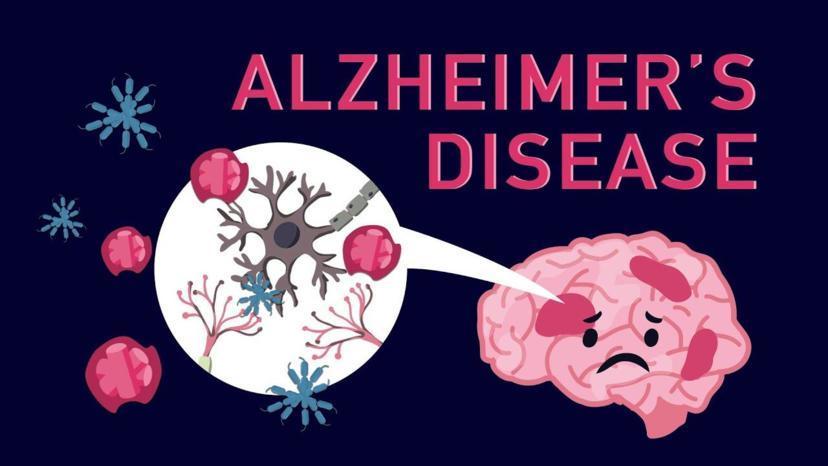
Expert Insights
The Gene Mutation in the Human Brain Is Linked with Alzheimer's Disease
Alzheimer's disease is a progressive neurodegenerative disorder that gradually destroys memory, thinking skills, and eventually, the ability to carry out even the simplest tasks. It is the most common cause of dementia or memory loss among older adults. While the exact causes are not fully understood, it is thought to involve the abnormal buildup of proteins in and around brain cells, leading to cell damage and eventual cell death. The root causes of most forms of Alzheimer's disease largely remain a mystery. Nowadays, researchers have discovered and revealed a new piece of the puzzle that could lead to better diagnosis and treatments of the older adults.
In 1906, German physician Dr. Alois Alzheimer first described "a peculiar disease" — one of profound memory loss and microscopic brain changes — a disease we now know as Alzheimer's Disease. Early on in Alzheimer's and related dementias, people experience changes in thinking, remembering, and reasoning in a way that affects daily life and activities. Eventually, people with these diseases will need more help with simple, everyday tasks. This may include bathing, grooming, and dressing. Symptoms of this disease eventually grow severe enough to interfere with daily tasks. Alzheimer's disease is not a normal part of aging and it can worsen over time. Scientists believe Alzheimer's disease prevents parts of a cell's factory from running well. They are not sure where the trouble starts. But just like a real factory, backups and breakdowns in one system cause problems in other areas. As damage spreads, cells lose their ability to do their jobs and, eventually die, causing irreversible changes in the brain.
Neurogeneticists at the University of Florida led by Doctor Lien Nguyen and Doctor Laura Ranum have discovered a novel genetic mutation and associated buildup of toxic proteins in the brain-a type distinct from amyloid or tau proteins that have long been the focus of Alzheimer's research. They found that 45 of 80 autopsy brains of Alzheimer's patients showed the accumulation of toxic proteins containing long chains of the amino acids glycine and arginine, or polyGR. "While most Alzheimer's research has focused on the buildup of amyloid beta and tau, the polyGR proteins were found in Alzheimer's brains were unexpected and completely different" Ranum said. This new discovery led investigators and others around the country on a hunt for a "culprit", a genetic mutations that could produce these proteins.
Researchers of the said university describe how they developed a high-tech way to quickly sort through a patient's entire human genome and grab a repeating segment of DNA with a GGGAGA repeat that produces toxic polyGR proteins. In lieu, people who carry a specific variation of this repeated DNA strand-which resides in a gene called CASPB- have more than double the risk of developing late-onset Alzheimer's disease. It is also raises the possibility that other yet-to-be-identified mutations contribute to the said disease. Furthermore, these results of the study could be used to develop new biomarkers that may lead to better diagnosis and to the development of new therapeutic approaches to target these toxic proteins. In addition, these findings support investigating whether a combination of the genetic mutation and stress further increases Alzheimer's risk. The both researchers emphasized that for their studies for the past 15 years, stress can increase the production of these type of proteins and also the impact of various types of stress as a risk factor for Alzheimer's disease and a whole class of repeat expansion disorders will be important for future studies.
Although Alzheimer's disease has no cure but two treatments — Donanemab (Kisunla) and Lecanemab (Legembi) — demonstrate that removing beta-amyloid, one of the hallmarks of Alzheimer's disease, from the brain reduces cognitive and functional decline in people living with early Alzheimer's. Other treatments can temporarily slow the worsening of dementia symptoms and improve quality of life for those with living Alzheimer's and their caregivers. Today, there is a worldwide effort underway to find better ways to treat the disease, delay its onset and prevent it from developing.
In this new modern world, Alzheimer's is at the forefront of biomedical research. Researchers are working to uncover as many aspects of Alzheimer's and other dementia as possible. Some of the most remarkable progress has shed light on how Alzheimer's affects the brain. The hope is this better understanding will lead to new treatments. Many potential approaches are currently under investigation worldwide. Moreover, with this new discovery of the two researchers, hoping that it could really be solved the root causes of the disease and the other scientists around the world could discovered the cure of this neurodegenerative brain disorder.
Neri Torrato Camina Jr, BSN,RN
Florida









